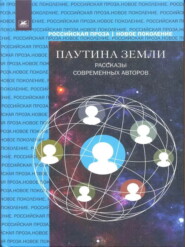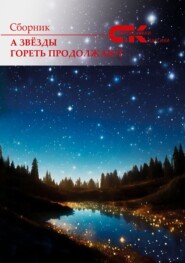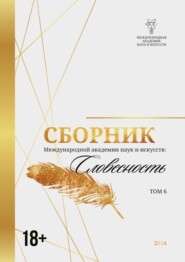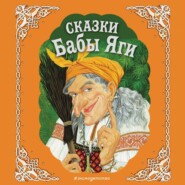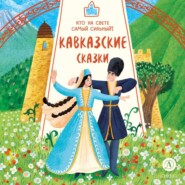По всем вопросам обращайтесь на: info@litportal.ru
(©) 2003-2024.
✖
Vampyre and the other Tales of Macabre
Настройки чтения
Размер шрифта
Высота строк
Поля
“This is the end of my journey, and of my life – I came here to die: but I have a request to make, a command – for such my last words must be – You will observe it?”
“Most certainly; but have better hopes.”
“I have no hopes, nor wishes, but this – conceal my death from every human being.”
“I hope there will be no occasion; that you will recover, and-”
“Peace! – it must be so: promise this.”
“I do.”
“Swear it, by all that” – He here dictated an oath of great solemnity.
“There is no occasion for this – I will observe your request; and to doubt me is-”
“It cannot be helped, – you must swear.”
I took the oath: it appeared to relieve him. He removed a seal ring from his finger, on which were some Arabic characters, and presented it to me. He proceeded -
“On the ninth day of the month, at noon precisely (what month you please, but this must be the day), you must fling this ring into the salt springs which run into the Bay of Eleusis: the day after, at the same hour, you must repair to the ruins of the temple of Ceres, and wait one hour.”
“Why?”
“You will see.”
“The ninth day of the month, you say?”
“The ninth.”
As I observed that the present was the ninth day of the month, his countenance changed, and he paused. As he sate, evidently becoming more feeble, a stork, with a snake in her beak, perched upon a tombstone near us; and, without devouring her prey, appeared to be stedfastly regarding us. I know not what impelled me to drive it away, but the attempt was useless; she made a few circles in the air, and returned exactly to the same spot. Darvell pointed to it, and smiled: he spoke – I know not whether to himself or to me – but the words were only, “'Tis well!”
“What is well? what do you mean?”
“No matter: you must bury me here this evening, and exactly where that bird is now perched. You know the rest of my injunctions.”
He then proceeded to give me several directions as to the manner in which his death might be best concealed. After these were finished, he exclaimed, “You perceive that bird?”
“Certainly.”
“And the serpent writhing in her beak?”
“Doubtless: there is nothing uncommon in it; it is her natural prey. But it is odd that she does not devour it.”
He smiled in a ghastly manner, and said, faintly, “It is not yet time!” As he spoke, the stork flew away. My eyes followed it for a moment, it could hardly be longer than ten might be counted. I felt Darvell's weight, as it were, increase upon my shoulder, and, turning to look upon his face, perceived that he was dead!
I was shocked with the sudden certainty which could not be mistaken – his countenance in a few minutes became nearly black. I should have attributed so rapid a change to poison, had I not been aware that he had no opportunity of receiving it unperceived. The day was declining, the body was rapidly altering, and nothing remained but to fulfil his request. With the aid of Suleiman's ataghan and my own sabre, we scooped a shallow grave upon the spot which Darvell had indicated: the earth easily gave way, having already received some Mahometan tenant. We dug as deeply as the time permitted us, and throwing the dry earth upon all that remained of the singular being so lately departed, we cut a few sods of greener turf from the less withered soil around us, and laid them upon his sepulchre.
Between astonishment and grief, I was tearless.
Carmilla
By Joseph Sheridan Le Fanu
Prologue
Upon a paper attached to the Narrative which follows, Doctor Hesselius has written a rather elaborate note, which he accompanies with a reference to his Essay on the strange subject which the MS. illuminates.
This mysterious subject he treats, in that Essay, with his usual learning and acumen, and with remarkable directness and condensation. It will form but one volume of the series of that extraordinary man's collected papers.
As I publish the case, in this volume, simply to interest the “laity,” I shall forestall the intelligent lady, who relates it, in nothing; and after due consideration, I have determined, therefore, to abstain from presenting any précis of the learned Doctor's reasoning, or extract from his statement on a subject which he describes as “involving, not improbably, some of the profoundest arcana of our dual existence, and its intermediates.”
I was anxious on discovering this paper, to reopen the correspondence commenced by Doctor Hesselius, so many years before, with a person so clever and careful as his informant seems to have been. Much to my regret, however, I found that she had died in the interval.
She, probably, could have added little to the Narrative which she communicates in the following pages, with, so far as I can pronounce, such conscientious particularity.
I
An Early Fright
In Styria, we, though by no means magnificent people, inhabit a castle, or schloss. A small income, in that part of the world, goes a great way. Eight or nine hundred a year does wonders. Scantily enough ours would have answered among wealthy people at home. My father is English, and I bear an English name, although I never saw England. But here, in this lonely and primitive place, where everything is so marvelously cheap, I really don't see how ever so much more money would at all materially add to our comforts, or even luxuries.
My father was in the Austrian service, and retired upon a pension and his patrimony, and purchased this feudal residence, and the small estate on which it stands, a bargain.
Nothing can be more picturesque or solitary. It stands on a slight eminence in a forest. The road, very old and narrow, passes in front of its drawbridge, never raised in my time, and its moat, stocked with perch, and sailed over by many swans, and floating on its surface white fleets of water lilies.
Over all this the schloss shows its many-windowed front; its towers, and its Gothic chapel.
The forest opens in an irregular and very picturesque glade before its gate, and at the right a steep Gothic bridge carries the road over a stream that winds in deep shadow through the wood. I have said that this is a very lonely place. Judge whether I say truth. Looking from the hall door towards the road, the forest in which our castle stands extends fifteen miles to the right, and twelve to the left. The nearest inhabited village is about seven of your English miles to the left. The nearest inhabited schloss of any historic associations, is that of old General Spielsdorf, nearly twenty miles away to the right.
I have said “the nearest inhabited village,” because there is, only three miles westward, that is to say in the direction of General Spielsdorf's schloss, a ruined village, with its quaint little church, now roofless, in the aisle of which are the moldering tombs of the proud family of Karnstein, now extinct, who once owned the equally desolate chateau which, in the thick of the forest, overlooks the silent ruins of the town.
Respecting the cause of the desertion of this striking and melancholy spot, there is a legend which I shall relate to you another time.
I must tell you now, how very small is the party who constitute the inhabitants of our castle. I don't include servants, or those dependents who occupy rooms in the buildings attached to the schloss. Listen, and wonder! My father, who is the kindest man on earth, but growing old; and I, at the date of my story, only nineteen. Eight years have passed since then.
I and my father constituted the family at the schloss. My mother, a Styrian lady, died in my infancy, but I had a good-natured governess, who had been with me from, I might almost say, my infancy. I could not remember the time when her fat, benignant face was not a familiar picture in my memory.
This was Madame Perrodon, a native of Berne, whose care and good nature now in part supplied to me the loss of my mother, whom I do not even remember, so early I lost her. She made a third at our little dinner party. There was a fourth, Mademoiselle De Lafontaine, a lady such as you term, I believe, a “finishing governess.” She spoke French and German, Madame Perrodon French and broken English, to which my father and I added English, which, partly to prevent its becoming a lost language among us, and partly from patriotic motives, we spoke every day. The consequence was a Babel, at which strangers used to laugh, and which I shall make no attempt to reproduce in this narrative. And there were two or three young lady friends besides, pretty nearly of my own age, who were occasional visitors, for longer or shorter terms; and these visits I sometimes returned.
These were our regular social resources; but of course there were chance visits from “neighbors” of only five or six leagues distance. My life was, notwithstanding, rather a solitary one, I can assure you.
My gouvernantes had just so much control over me as you might conjecture such sage persons would have in the case of a rather spoiled girl, whose only parent allowed her pretty nearly her own way in everything.
The first occurrence in my existence, which produced a terrible impression upon my mind, which, in fact, never has been effaced, was one of the very earliest incidents of my life which I can recollect. Some people will think it so trifling that it should not be recorded here. You will see, however, by-and-by, why I mention it. The nursery, as it was called, though I had it all to myself, was a large room in the upper story of the castle, with a steep oak roof. I can't have been more than six years old, when one night I awoke, and looking round the room from my bed, failed to see the nursery maid. Neither was my nurse there; and I thought myself alone. I was not frightened, for I was one of those happy children who are studiously kept in ignorance of ghost stories, of fairy tales, and of all such lore as makes us cover up our heads when the door cracks suddenly, or the flicker of an expiring candle makes the shadow of a bedpost dance upon the wall, nearer to our faces. I was vexed and insulted at finding myself, as I conceived, neglected, and I began to whimper, preparatory to a hearty bout of roaring; when to my surprise, I saw a solemn, but very pretty face looking at me from the side of the bed. It was that of a young lady who was kneeling, with her hands under the coverlet. I looked at her with a kind of pleased wonder, and ceased whimpering. She caressed me with her hands, and lay down beside me on the bed, and drew me towards her, smiling; I felt immediately delightfully soothed, and fell asleep again. I was wakened by a sensation as if two needles ran into my breast very deep at the same moment, and I cried loudly. The lady started back, with her eyes fixed on me, and then slipped down upon the floor, and, as I thought, hid herself under the bed.
I was now for the first time frightened, and I yelled with all my might and main. Nurse, nursery maid, housekeeper, all came running in, and hearing my story, they made light of it, soothing me all they could meanwhile. But, child as I was, I could perceive that their faces were pale with an unwonted look of anxiety, and I saw them look under the bed, and about the room, and peep under tables and pluck open cupboards; and the housekeeper whispered to the nurse: “Lay your hand along that hollow in the bed; someone did lie there, so sure as you did not; the place is still warm.”
I remember the nursery maid petting me, and all three examining my chest, where I told them I felt the puncture, and pronouncing that there was no sign visible that any such thing had happened to me.
“Most certainly; but have better hopes.”
“I have no hopes, nor wishes, but this – conceal my death from every human being.”
“I hope there will be no occasion; that you will recover, and-”
“Peace! – it must be so: promise this.”
“I do.”
“Swear it, by all that” – He here dictated an oath of great solemnity.
“There is no occasion for this – I will observe your request; and to doubt me is-”
“It cannot be helped, – you must swear.”
I took the oath: it appeared to relieve him. He removed a seal ring from his finger, on which were some Arabic characters, and presented it to me. He proceeded -
“On the ninth day of the month, at noon precisely (what month you please, but this must be the day), you must fling this ring into the salt springs which run into the Bay of Eleusis: the day after, at the same hour, you must repair to the ruins of the temple of Ceres, and wait one hour.”
“Why?”
“You will see.”
“The ninth day of the month, you say?”
“The ninth.”
As I observed that the present was the ninth day of the month, his countenance changed, and he paused. As he sate, evidently becoming more feeble, a stork, with a snake in her beak, perched upon a tombstone near us; and, without devouring her prey, appeared to be stedfastly regarding us. I know not what impelled me to drive it away, but the attempt was useless; she made a few circles in the air, and returned exactly to the same spot. Darvell pointed to it, and smiled: he spoke – I know not whether to himself or to me – but the words were only, “'Tis well!”
“What is well? what do you mean?”
“No matter: you must bury me here this evening, and exactly where that bird is now perched. You know the rest of my injunctions.”
He then proceeded to give me several directions as to the manner in which his death might be best concealed. After these were finished, he exclaimed, “You perceive that bird?”
“Certainly.”
“And the serpent writhing in her beak?”
“Doubtless: there is nothing uncommon in it; it is her natural prey. But it is odd that she does not devour it.”
He smiled in a ghastly manner, and said, faintly, “It is not yet time!” As he spoke, the stork flew away. My eyes followed it for a moment, it could hardly be longer than ten might be counted. I felt Darvell's weight, as it were, increase upon my shoulder, and, turning to look upon his face, perceived that he was dead!
I was shocked with the sudden certainty which could not be mistaken – his countenance in a few minutes became nearly black. I should have attributed so rapid a change to poison, had I not been aware that he had no opportunity of receiving it unperceived. The day was declining, the body was rapidly altering, and nothing remained but to fulfil his request. With the aid of Suleiman's ataghan and my own sabre, we scooped a shallow grave upon the spot which Darvell had indicated: the earth easily gave way, having already received some Mahometan tenant. We dug as deeply as the time permitted us, and throwing the dry earth upon all that remained of the singular being so lately departed, we cut a few sods of greener turf from the less withered soil around us, and laid them upon his sepulchre.
Between astonishment and grief, I was tearless.
Carmilla
By Joseph Sheridan Le Fanu
Prologue
Upon a paper attached to the Narrative which follows, Doctor Hesselius has written a rather elaborate note, which he accompanies with a reference to his Essay on the strange subject which the MS. illuminates.
This mysterious subject he treats, in that Essay, with his usual learning and acumen, and with remarkable directness and condensation. It will form but one volume of the series of that extraordinary man's collected papers.
As I publish the case, in this volume, simply to interest the “laity,” I shall forestall the intelligent lady, who relates it, in nothing; and after due consideration, I have determined, therefore, to abstain from presenting any précis of the learned Doctor's reasoning, or extract from his statement on a subject which he describes as “involving, not improbably, some of the profoundest arcana of our dual existence, and its intermediates.”
I was anxious on discovering this paper, to reopen the correspondence commenced by Doctor Hesselius, so many years before, with a person so clever and careful as his informant seems to have been. Much to my regret, however, I found that she had died in the interval.
She, probably, could have added little to the Narrative which she communicates in the following pages, with, so far as I can pronounce, such conscientious particularity.
I
An Early Fright
In Styria, we, though by no means magnificent people, inhabit a castle, or schloss. A small income, in that part of the world, goes a great way. Eight or nine hundred a year does wonders. Scantily enough ours would have answered among wealthy people at home. My father is English, and I bear an English name, although I never saw England. But here, in this lonely and primitive place, where everything is so marvelously cheap, I really don't see how ever so much more money would at all materially add to our comforts, or even luxuries.
My father was in the Austrian service, and retired upon a pension and his patrimony, and purchased this feudal residence, and the small estate on which it stands, a bargain.
Nothing can be more picturesque or solitary. It stands on a slight eminence in a forest. The road, very old and narrow, passes in front of its drawbridge, never raised in my time, and its moat, stocked with perch, and sailed over by many swans, and floating on its surface white fleets of water lilies.
Over all this the schloss shows its many-windowed front; its towers, and its Gothic chapel.
The forest opens in an irregular and very picturesque glade before its gate, and at the right a steep Gothic bridge carries the road over a stream that winds in deep shadow through the wood. I have said that this is a very lonely place. Judge whether I say truth. Looking from the hall door towards the road, the forest in which our castle stands extends fifteen miles to the right, and twelve to the left. The nearest inhabited village is about seven of your English miles to the left. The nearest inhabited schloss of any historic associations, is that of old General Spielsdorf, nearly twenty miles away to the right.
I have said “the nearest inhabited village,” because there is, only three miles westward, that is to say in the direction of General Spielsdorf's schloss, a ruined village, with its quaint little church, now roofless, in the aisle of which are the moldering tombs of the proud family of Karnstein, now extinct, who once owned the equally desolate chateau which, in the thick of the forest, overlooks the silent ruins of the town.
Respecting the cause of the desertion of this striking and melancholy spot, there is a legend which I shall relate to you another time.
I must tell you now, how very small is the party who constitute the inhabitants of our castle. I don't include servants, or those dependents who occupy rooms in the buildings attached to the schloss. Listen, and wonder! My father, who is the kindest man on earth, but growing old; and I, at the date of my story, only nineteen. Eight years have passed since then.
I and my father constituted the family at the schloss. My mother, a Styrian lady, died in my infancy, but I had a good-natured governess, who had been with me from, I might almost say, my infancy. I could not remember the time when her fat, benignant face was not a familiar picture in my memory.
This was Madame Perrodon, a native of Berne, whose care and good nature now in part supplied to me the loss of my mother, whom I do not even remember, so early I lost her. She made a third at our little dinner party. There was a fourth, Mademoiselle De Lafontaine, a lady such as you term, I believe, a “finishing governess.” She spoke French and German, Madame Perrodon French and broken English, to which my father and I added English, which, partly to prevent its becoming a lost language among us, and partly from patriotic motives, we spoke every day. The consequence was a Babel, at which strangers used to laugh, and which I shall make no attempt to reproduce in this narrative. And there were two or three young lady friends besides, pretty nearly of my own age, who were occasional visitors, for longer or shorter terms; and these visits I sometimes returned.
These were our regular social resources; but of course there were chance visits from “neighbors” of only five or six leagues distance. My life was, notwithstanding, rather a solitary one, I can assure you.
My gouvernantes had just so much control over me as you might conjecture such sage persons would have in the case of a rather spoiled girl, whose only parent allowed her pretty nearly her own way in everything.
The first occurrence in my existence, which produced a terrible impression upon my mind, which, in fact, never has been effaced, was one of the very earliest incidents of my life which I can recollect. Some people will think it so trifling that it should not be recorded here. You will see, however, by-and-by, why I mention it. The nursery, as it was called, though I had it all to myself, was a large room in the upper story of the castle, with a steep oak roof. I can't have been more than six years old, when one night I awoke, and looking round the room from my bed, failed to see the nursery maid. Neither was my nurse there; and I thought myself alone. I was not frightened, for I was one of those happy children who are studiously kept in ignorance of ghost stories, of fairy tales, and of all such lore as makes us cover up our heads when the door cracks suddenly, or the flicker of an expiring candle makes the shadow of a bedpost dance upon the wall, nearer to our faces. I was vexed and insulted at finding myself, as I conceived, neglected, and I began to whimper, preparatory to a hearty bout of roaring; when to my surprise, I saw a solemn, but very pretty face looking at me from the side of the bed. It was that of a young lady who was kneeling, with her hands under the coverlet. I looked at her with a kind of pleased wonder, and ceased whimpering. She caressed me with her hands, and lay down beside me on the bed, and drew me towards her, smiling; I felt immediately delightfully soothed, and fell asleep again. I was wakened by a sensation as if two needles ran into my breast very deep at the same moment, and I cried loudly. The lady started back, with her eyes fixed on me, and then slipped down upon the floor, and, as I thought, hid herself under the bed.
I was now for the first time frightened, and I yelled with all my might and main. Nurse, nursery maid, housekeeper, all came running in, and hearing my story, they made light of it, soothing me all they could meanwhile. But, child as I was, I could perceive that their faces were pale with an unwonted look of anxiety, and I saw them look under the bed, and about the room, and peep under tables and pluck open cupboards; and the housekeeper whispered to the nurse: “Lay your hand along that hollow in the bed; someone did lie there, so sure as you did not; the place is still warm.”
I remember the nursery maid petting me, and all three examining my chest, where I told them I felt the puncture, and pronouncing that there was no sign visible that any such thing had happened to me.






